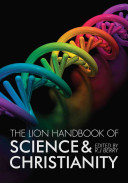I recently conducted a class on Creation, Fall and Redemption, with the emphasis on creation, for a colleague’s Essentials of Philosophy class. Our conversation ranged over a number of important issues in the Christian philosophy of creation, helped by some particularly sharp and engaged students. I offer the Powerpoint here in case it’s of help. (Just discovered I have to upgrade if I’m to include the audio.)
Note of a change: I’m putting the file directly into WordPress, so anyone who couldn’t reach it before should be able to access it now.
Creation, Fall, Redemption – Ess’ls of Philosophy
I’ll have to look into that audio! I received some very intelligent questions.
The key philosophical question about creation in my mind over the past 12 months or so is, “How long of a leash does God give the created order?” That is, is every event in the world God’s doing quite directly, as Luther tended to think? Is apparent cause and effect in nature really something of an illusion? Jonathan Edwards was quite strong on this too, and the classic figure who really unplugged natural events causally from one another, I understand, was William of Ockham with his ‘occasionalism’, as it’s called. Natural law, in this model, is a way of describing the regularities in God’s actions. Then if God chooses to be ‘irregular’ and do miracles, he’s not breaking any higher law, as it were. It keep the Lawgiver in charge of the laws. That’s attractive, and protects the sovereignty of God.
But there’s also something to be said for God giving creation its own, robust existence – allowing the natural world enough autonomy that one thing can really lead to another. Billiard ball A striking billiard ball B will send it off at the appropriate angle and speed without God needing to ‘micro-manage’ that interaction. Creation is programmed to behave regularly by God, in the way it will need to if human and other life is to be possible:
As long as the earth endures,
seedtime and harvest,
cold and heat,
summer and winter,
day and night,
will never cease.
Gen. 8:22 (NIV)
Genesis 1 perhaps hints at God’s delegation of causal power to creation when it says, “Let the land produce vegetation” (Gen. 1:11), or animals (1:24). In any case, there are theological virtues that may be argued for this position as well, e.g. that it gives better assurance that we as human beings are given real existence involving genuine moment-to-moment continuity. If we follow a full-blown creatio continuua model, we might find ourselves saying that God effectively creates the world anew moment by moment. The risk there is that we become like video images, an illusion created by a rapid raster scan rate.
So for God to give natural bodies and living creatures a real moment-to-moment existence and continuity would be a true condescension and giving on his part – to introduce into existence other real entities where previously there had been none besides Him. Pondering that will rock your philosophical socks. But there is risk at this end too. Make the position too strong, and you have a creation that, once made, no longer needs God in order to ‘do its thing’. Further still, and you’re into process theology, where God is another cork in the stream of time, trying to manage things as best He can, like a very good chess player who still doesn’t know exactly what the opponent will do. I get that there are bits in the Bible where God speaks of a future that’s unresolved because of the human freedom factor (e.g. Jer. 26:3; 36:3), and we ought to take those seriously. But to imagine God as lodged in the stream of time just because we are is small-minded. I recommend Crysdale & Ormerod, Creator God, Evolving World, for an intelligent treatment of this issue. For a scientist out near the edge of a creation that’s too independent, in my view (i.e. risks dabbling with deism), but raises the same sorts of issues check out:










